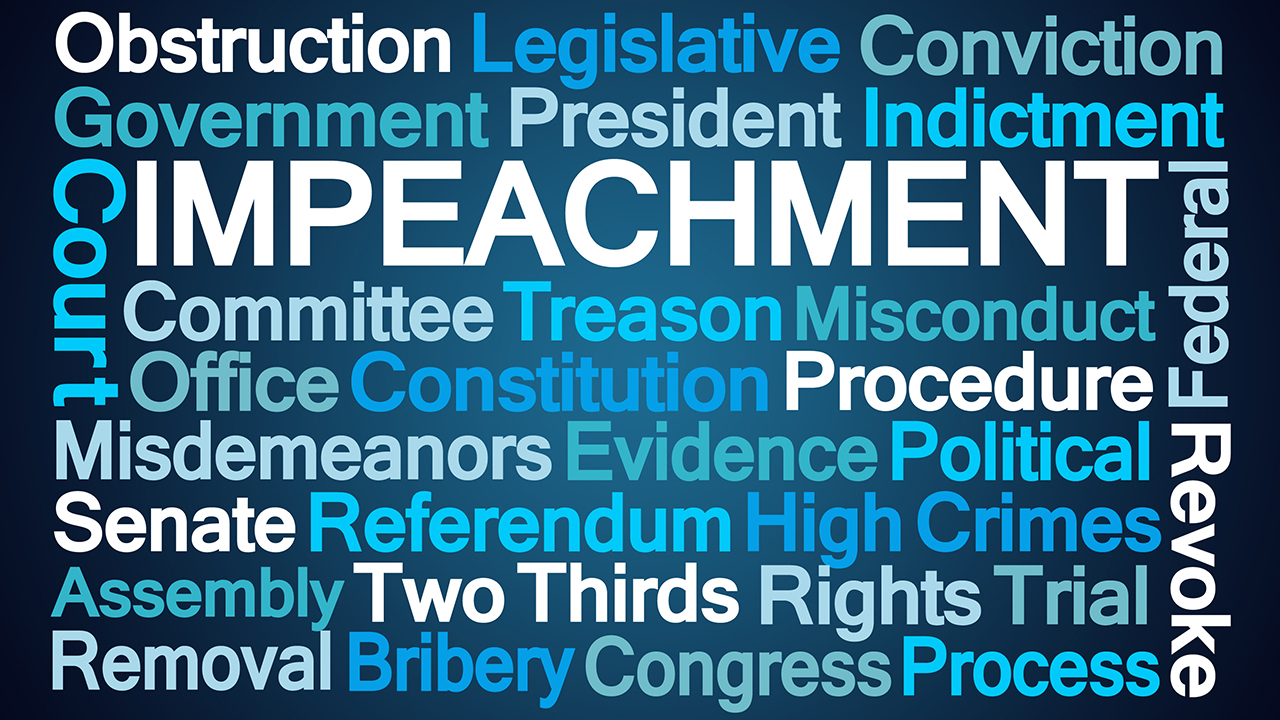
Finally, House Republicans seem to be moving, ever so cautiously, toward the impeachment of President Biden. But that process has been far too slow for most Republicans. With every new revelation about Biden family finances, rank-and-file Republicans have grown not just frustrated, but increasingly hostile to House GOP leadership. Some predict that if House Republicans do not move decisively toward impeachment right after the August break, they will (and should) lose next year’s elections.
One House Republican ran out of patience two months ago and decided to take action on her own. On June 13, 2023, Congresswoman Lauren Boebert (R-CO) filed a House Resolution that would have impeached Biden for leaving open the nation’s Southern Border. On June 20, 2023, she exercised her right to demand a floor vote. When the Boebert resolution came before the House on June 22, 2023, the matter was deferred by being referred to Committee — actually two Committees (Homeland Security and the Judiciary) — on a party line vote, 219-208. If the resolution had passed, that would have been it — the House would have impeached Biden, sending the matter to the Senate for trial. The Congressional Research Service (CRS) agrees that impeachment could occur by passage of a resolution — such as the Boebert resolution — but the normal process normally involves an investigation by the Judiciary Committee, which then reports back to the House.
Now, two months later, Speaker Kevin McCarthy (R-CA) appears to be on the verge of taking a somewhat different approach toward impeachment. That step would be for the House to formally “authorize an impeachment inquiry.” Many support the House formally authorizing an “impeachment inquiry,” although it is not required by House rules. Indeed, three of the last five judicial impeachments did not involve a vote by the full House to formally authorize an impeachment inquiry.
Whichever approach is taken, a House Committee — typically the House Judiciary Committee — investigates, holds hearings, and then may recommend impeachment in the form of a report to the full House. That report would set out its recommended “articles of impeachment” — the equivalent of a grand jury indictment in a criminal case. Each article of the impeachment resolution would state an independent ground constituting a separate impeachable offense.
It’s worth reviewing the basics. The term impeachment is often misused, but it is not the same as removal from office. Article I of the Constitution vests the power of impeachment in Congress. Section 2 states the “[t]he House of Representatives shall … have the sole Power of Impeachment,” and Section 3 provides that “[t]he Senate shall have the sole Power to try all Impeachments.” Other than providing that the Chief Justice of the United States presides over impeachments of the President, the Constitution is essentially silent on procedure, allowing each House to decide its own rules for how to conduct impeachment trials. In Section 5, the Constitution provides: “[e]ach House may determine the rules of its proceedings” and this would include impeachments.
However, there are some established House practices — although not formal rules — which govern handling articles of impeachment, including the following:
- Articles of impeachment reported by the Judiciary Committee are privileged for immediate consideration on the House floor;
- Passage is by simple majority vote;
- If the House approves one or more articles of impeachment, the House appoints members as “managers” — essentially House prosecutors — to present the case for impeachment at the ensuing trial in the Senate.
One of the reasons that some prefer a vote formally authorizing an official impeachment inquiry is that it could facilitate efforts by the House to require the Executive Branch to turn over more documents. In fact, a Congressional Research Service analysis explains that: “[d]uring the Nixon impeachment, the Judiciary Committee noted that ‘not one’ subject of nearly 70 prior impeachment investigations ‘challenged the power of the committee conducting the impeachment investigation to compel the production of evidence it deemed necessary.’” There are at least two reasons that the Executive Branch is more willing to provide documents in response to a House-authorized impeachment.
First, failure to turn over documents could cause the Judiciary Committee to add another Article of impeachment for failure to comply with a committee subpoena. This happened during both the Nixon and Clinton impeachment investigations.
Second, if the Executive Branch failed to turn over documents, the matter could wind up in court, and the pendency of an official House-approved inquiry may improve the likelihood of obtaining a court ordering committee access to subpoenaed materials and overcoming executive privilege assertions made in response to congressional subpoenas. President Biden has already begun asserting executive privilege in refusing to turn over documents on Hunter Biden’s business dealings.
Indeed, Speaker McCarthy has cited the Biden administration’s refusal to turn over documents as a key reason to authorize a formal impeachment inquiry. He has “demanded that the president furnish Congress with documentsthat demonstrate that he did not accept a $5 million bribe from Mykola Zlochevsky, the owner of Ukrainian gas company Burisma, as alleged by an FBI informant in June of 2020; talk to his son, Hunter Biden, about his overseas influence peddling operation; or accept foreign money from foreign nationals.” Since “the Biden administration still is resisting the sharing of information with the House,” legal scholar Jonathan Turley has argued that “there is little choice but to commence an impeachment inquiry. The authority of the House is at its apex when carrying out its duties under the impeachment clause.” McCarthy noted that “if they withhold the documents and fight like they have now to not provide to the American public what they deserve to know, we will move forward with impeachment inquiry when we come back into session.” We shall see.
The charges against President Biden are serious, and grow more serious every day. Only devoted partisans like Trump impeachment manager Congressman Jamie Raskin (D-MD) take the position that there is nothing to see here. Based on what is publicly known about President Biden, failure to launch an impeachment investigation could reveal Republicans to be feckless, jeopardizing their changes of being voted back into power next year.
Editor’s Note: To read the articles in this series, please click here.






